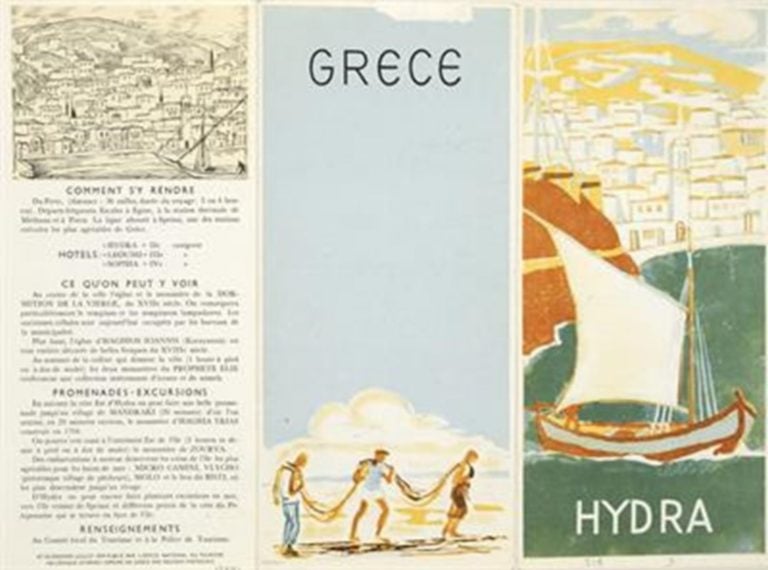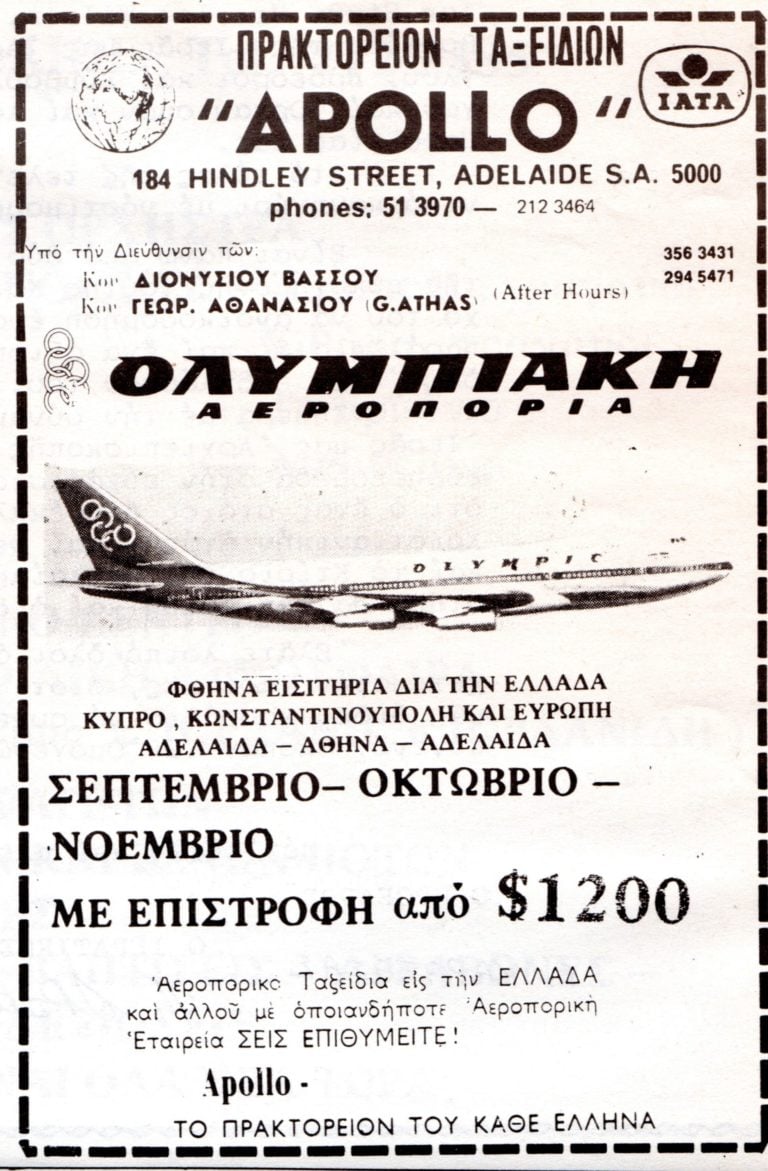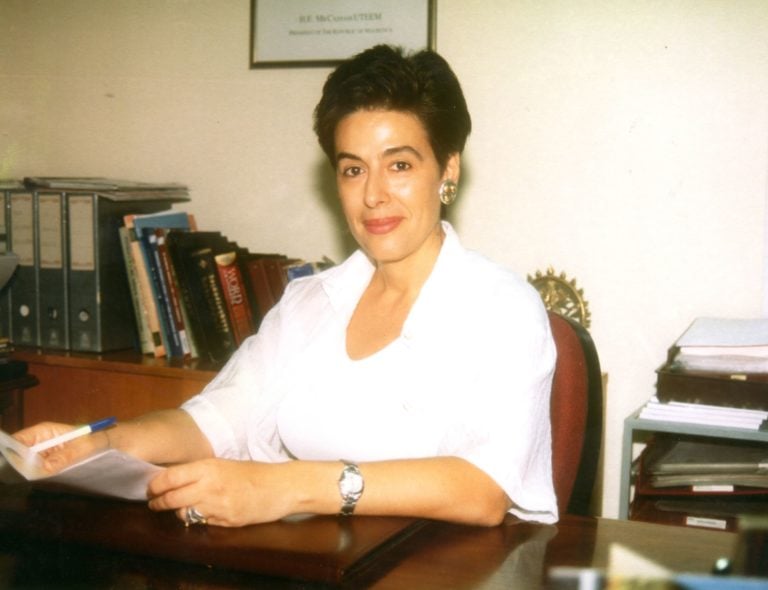Travel overseas is increasingly a possibility with Tourism Minister Simon Birmingham saying last week that it may be possible to travel next year providing an effective vaccine for COVID-19 is in place.
But perhaps one other thing you will need to consider should you decide to go overseas and that is whether there is travel insurance available, suggests travel industry veteran Helen Vassos. If there was a need to take up travel insurance, COVID-19 has made it a serious travel consideration.
“At the moment, there is no travel insurance available and the big question is when will travel insurance starting covering you,” says Ms Vassos an Adelaide-based travel agent who is a consultant to World Aviation Services Ltd in Greece, a company she founded and owned.
“This is a very important issue to consider: what will happen to you should you get sick? You will need travel insurance as the likelihood of getting sick and needing treatment overseas is quite high in the current conditions,” she warns.
“We also will need to know for how long will a COVID-19 vaccination be effective? Travel may not be viable in 2021.”
Ms Vassos has worked in the travel agent since her early years. Her father, Dionysios, opened his own travel agency Apollo Travel in Adelaide, in 1959. He worked part time as a travel agent while holding down a full-time job.
“I grew up in this (travel) industry and travel was on my mind (from an early age),” she said. Her school would send out the children to collect travel brochures from the travel agencies for their projects.
READ MORE: Overseas travel may be permissible by 2021, says Australia’s Tourism Minister Simon Birmingham
“Brochures and school projects helped the children to become interested in travel. There was not much to see of travel on television but the movies showed more.”

She said in the early 1960s, Greece gained a higher profile thanks to international films like The Boy and the Dolphin and Summer Holidays, starring Cliff Richard.
At the time, Greece and the islands were seen as an exotic location frequented by the jet setters of the day.
“The Greek consulates in Australia played an important role promoting travel to Greece with their displays of the Greek National Tourism Organisation (GNTO) posters and brochures.
“Each year, GNTO also brought out a book on Greece which featured spectacular photographs. The country was very advanced in the artistic presentation of its promotions in the 1960s.
The 1950s and 1960s saw thousands of Greeks coming by ship to settle in Australia.
The main shipping line plying the Europe – Australia route was Chandris Lines which was founded in 1960 by Antony Chandris. The International Organization for Migration (DEME) appointed a hostess on each Chandris Line vessel to help migrants prepare for their arrival to a new country which had different laws, customs and language.
The ships came in full and left with fewer numbers for the return to Europe. There were Greeks who returned to visit their families in the mother country. At that time, travel by boat was half the price of an Qantas air ticket and the ships allowed passengers to bring with them 40 cubic feet (1.1m3) of luggage – weight was not a consideration as it is with aircraft. That translates into a lot of gifts for the family in Greece.
It might have been simpler and cheaper to travel by ship but travel but who could really afford a trip of several weeks to the destination in Europe followed by the same on the way back and still hope to hold on to their job?
Besides, Ms Vassos said that air travel was becoming an increasingly cheaper travel option although it was to prove a more complicated process than going by ship. Which is where a good travel agent was an important aid.
READ MORE: Air prices remain steady despite the many obstacles to travel

What broke the hold of traditional airlines who dominated the long-haul flights to Europe was the entry of airliner companies like UTA and MAS (Malaysia-Singapore) Airlines – later to become Singapore Airlines and Malaysia Airlines- and other Asian carriers, that offered stop overs, a greater focus on service and cheaper flights.
“They offered free drinks (although the airlines learned to set limits and they offered free stopovers. Australians loved to visit several destinations in their journeys,” Ms Vassos said.
But this kind of travel was more complicated because the passenger would often have to switch planes and the process was particularly difficult for those who did not have a good command of English.
“Greeks who travelled on aircraft in the 1960s and 1970s were pretty brave. It was a big adventure to travel then,” Ms Vassos said. The responsibilities for the travel agent were pretty extensive.
“In the old days we warned passengers to take out travel insurance for their luggage, we would warn them of the obstacles ahead and of the transit preparations that they would face. We would prepare a letter for the passenger to take to the air hostess to help with the transit.”
But things could get out of hand. Going on the cheaper flights was complicated and it could be difficult to explain to someone who did not understand that they had to disembark in a strange place to locate the connecting flight to their destination.
“A Greek man from Adelaide arranged for his aged mother to come from Athens to Bangkok. From there she was to get onto another flight to Melbourne from where she would take a local flight to Adelaide.”
She did not arrive on her scheduled flight nor the following flights that day.
“What had happened was that she did not get off the aircraft at Bangkok but stayed on and flew to Tokyo where she did a bit of sightseeing before she was put on a flight to Australia,” recalled Ms Vassos. “I sometimes wondered how my father had the guts to sell air tickets.”
READ MORE: Greek travellers turning their wanderlust into a lifelong adventure, even after having kids
Travel became cheaper still with the introduction of bigger, more fuel-efficient aircraft such as the Boeing 747, B787 and the Airbus A340 and A380.
Ms Vassos first went to Greece in 1973 and stayed on for some years and was in a prime position to witness the development of tourism there.

“Many of the hotels were built thanks to government loans made to farmers who had land on the coast. As are result the hotels were owned by people who had no experience in the industry. The staff were drawn from the local rural communities.”
Many of the hotels made agreements with the big travel groups, like Thomas Cook, to fill the hotels.
“But if you rely on tour operators alone, you end up with your profit margins being squeezed. Today there are many small boutique hotels that are independent of the big conglomerates.”
“The age of the internet has greatly diminished the influence and role of the traditional travel agent. Travel agents are no longer the key intermediary between airlines and the client and with the new technology airlines can sell directly to the clients. While this is an advantage for the client, the advice and assistance of a travel agent is still relevant today and should not be disregarded.
“Even though the existence of travel agents is threatened, experts mostly agree that online and traditional distributional channels can and will coexist in the future,” says Ms Vassos.
READ MORE: A journey to Greece’s tourism campaigns: from archaeology to sharing authentic experience and values
